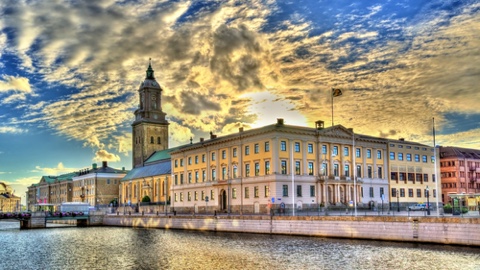
The EU funded project, ‘SCORE’ – Smart Cities and Open Data Re-use, will involve nine cities from seven countries in the North Sea region. SCORE’s objective is to increase the quality and reducing the cost of public service delivery by using open source solutions, particularly relating to traffic and parking, sustainable mobility, and water and waste management. Open source solutions that are both feasible and replicable will be developed and tested in their Urban Living Labs.
Johanneberg Science Park in the City of Gothenburg, Sweden is working with the different countries’ test-beds to facilitate knowledge exchange.
“Open data will enable us to rapidly achieve sustainability goals and create an attractive city that facilitates and improves the lives of Gothenburg residents. The public and politicians need to be involved more and the level of knowledge of open data, outside the expert group, needs to be raised. Through collaboration between countries, digitalization will accelerate significantly, which is in line with what the EU and the individual countries are striving for,” said Maria Ådahl, project manager of SCORE from Gothenburg.
By implementing the innovative open source solutions, SCORE hopes to reduce municipal service costs by 10%, improve the quality of public service by 20%, (as assessed by citizens), and reduce the time and cost of the application of innovation.
“For the City of Gothenburg, being a part of the SCORE project will create great value. Synchronizing and developing a common international language for open data is expected to contribute to accelerated innovation and greater entrepreneurship. The SCORE project is an example of collaboration with both businesses and academia in order to utilize the potential of the new technology that supports both sustainable urbanization but also digitalization in healthcare and e-health,” says Ante Baric, head of digitalization for the City of Gothenburg.


